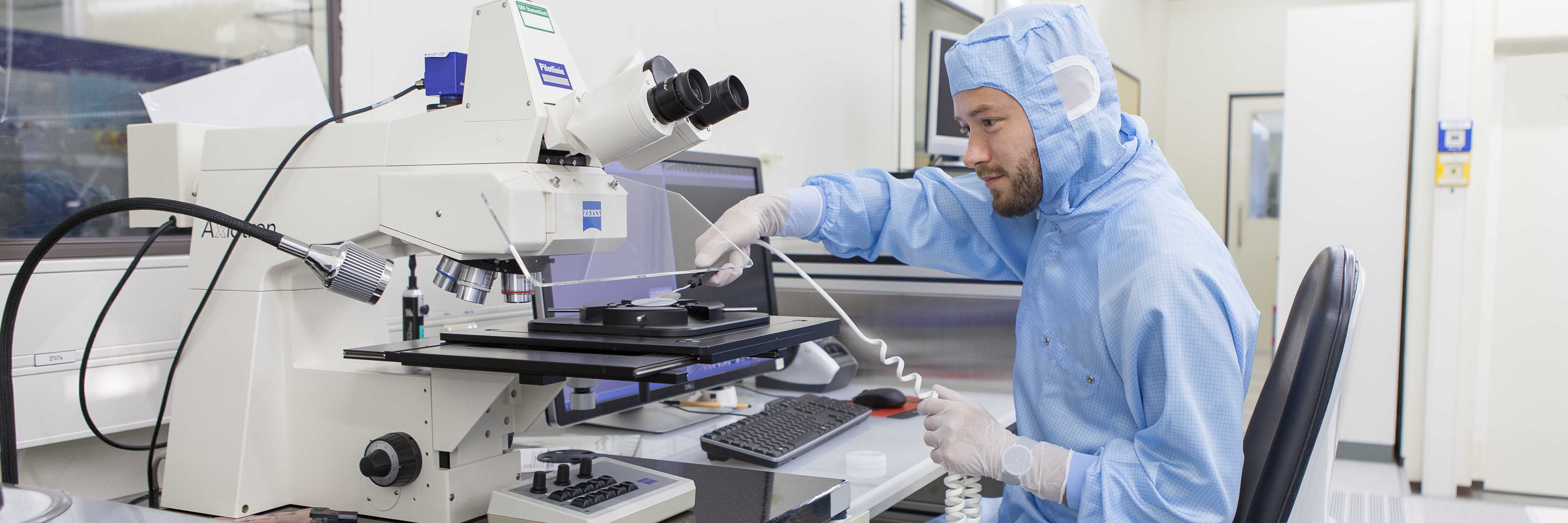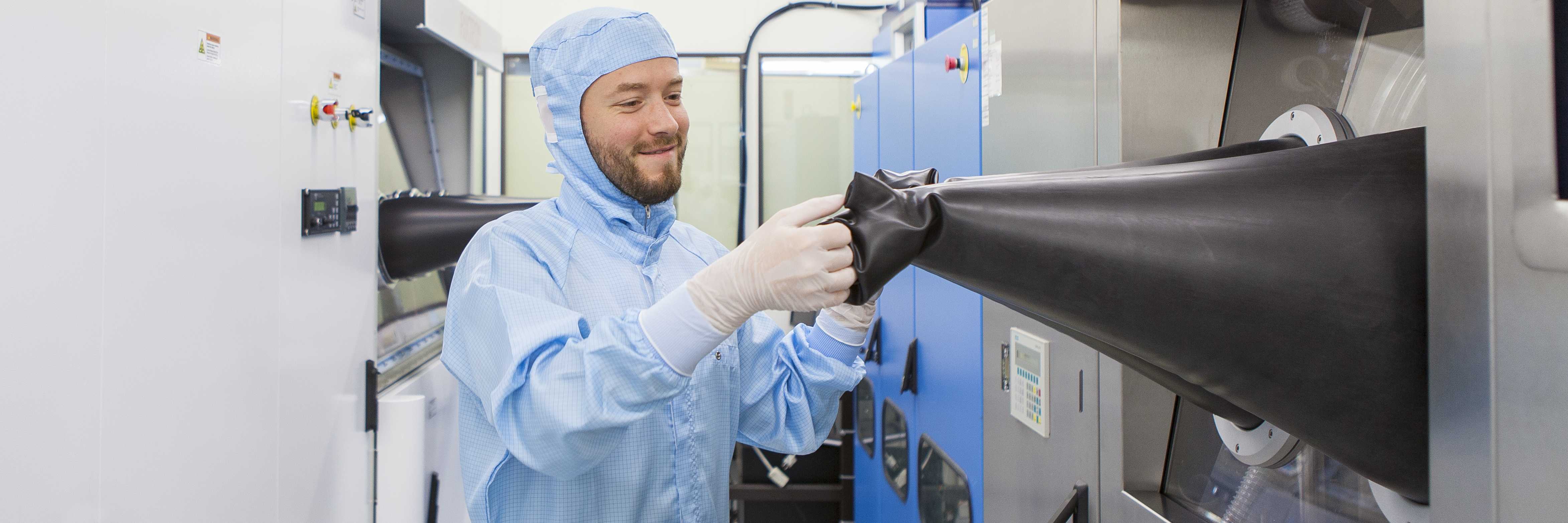You have a joint position as a PhD student and research associate at two institutes. How does the cooperation of the Fraunhofer IAF and the INATECH work and which benefits come along with it?
I work at both institutes. At the beginning, during my literature review phase, I was practically full-time at the INATECH. Meanwhile, I am almost exclusively at the Fraunhofer IAF, conducting the practical part of my research. The idea behind the dual concept of my position is the exchange between the university and the Fraunhofer Institute, as well as the promotion of young researchers. As a PhD student, this is an advantage, as the IAF has a considerable know-how in specific areas, for example in my research field, gallium nitride.
How did you come to write your doctorate in the field of power electronics? Have you always dreamt of working with electronic circuits and components?
Frankly, not at all. My father has studied automation technology and tried to raise my enthusiasm for microelectronics, but at that time I considered it quite boring. I started my academic career by studying Earth Science. Over time I extended my area of studies towards material science. As a result of my new found interest, I went on to do my Master’s degree in Sustainable Materials. Eventually, I found my way to power electronics during my work on my Master’s thesis, in which my second supervisor Prof. Dr. Oliver Ambacher, the director of the Fraunhofer IAF and professor at the University of Freiburg, raised my interest in the topic.
What exactly is the topic of your doctorate and what fascinates you about it?
My topic deals with vertical gallium nitride transistors. This technology has been researched very little up to now. Despite the fact that transistors based on gallium nitride are well known at the IAF, vertical transistors are relatively new and have not been researched in Germany till now. The lack of experience in this area makes it exciting and offers various starting points for my research. For instance, in the material development and in the areas of process development many obstacles still need to be overcome.
Vertical transistors are fascinating, since in comparison to established lateral transistors they have less limits considering their power. In other words, you can channel more power through them, which makes them especially promising for applications in data centers, automotive and telecommunications industry. However, a lot of development work will be necessary, in order to put the theoretical potential of a vertical layout to use. Yet, this step is what excites me the most. For me it is thrilling to see, whether a plan works out, or not. I have to choose all the components I need for a vertical transistor, put them together and check whether it works, how it works and how well it works.
 Fraunhofer Institute for Applied Solid State Physics IAF
Fraunhofer Institute for Applied Solid State Physics IAF

